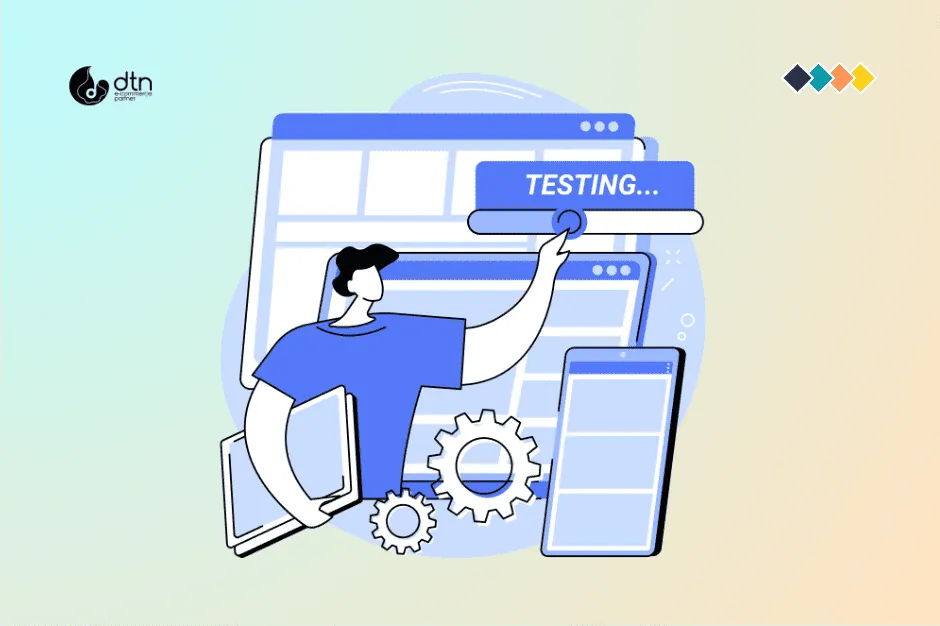Operational efficiency is not just desirable; it’s indispensable. The seamless integration of your e-commerce platform with other key systems can be the game-changer your business needs, leading to streamlined processes, reduced costs, and ultimately, elevated customer satisfaction levels. Let’s delve into some comprehensive best practices for effective e-commerce integration:
Table of Contents
1. Strategic Platform Selection
Choosing the right integration platform is paramount. Factors like scalability, flexibility, ease of use, and cost-effectiveness should be meticulously assessed to align with your unique business requirements. The platform you select should seamlessly blend with your existing infrastructure while accommodating future growth and evolution.

2. Precision Data Mapping
Before embarking on integration, invest ample time in meticulously mapping your data flow. This involves identifying the specific data sets that need to be shared across systems and establishing a structured framework for their transmission. A detailed and accurate data map lays the foundation for smooth integration execution.

3. Rigorous Testing Regimen
Thorough testing is the bedrock of successful integration. Subject your integrated systems to a battery of tests across diverse scenarios to unearth any anomalies or glitches. This rigorous testing regimen ensures that the integrated setup operates seamlessly, meeting performance benchmarks and user expectations.

4. Proactive Monitoring and Maintenance
Integration is not a one-and-done endeavor; it requires continuous vigilance and upkeep. Implement a robust monitoring framework to proactively track the performance of your integrated systems. Regular maintenance routines will help detect and rectify any emerging issues swiftly, preventing potential disruptions and optimizing operational efficiency.

5. Expert Guidance and Support
If navigating the intricacies of e-commerce integration seems daunting, don’t hesitate to seek expert assistance. Experienced integration professionals can offer invaluable insights and support at every stage of the process, from platform selection and data mapping to testing and ongoing maintenance.

Additional Recommendations to Enhance Integration Effectiveness
- Leverage a Unified Integration Platform: Consolidating all integration efforts onto a single platform streamlines management and ensures cohesion across systems.
- Embrace Automation: Automating repetitive integration tasks not only saves time and resources but also minimizes the risk of human error, enhancing overall efficiency.
- Harness Data Validation Tools: Implement robust data validation mechanisms to verify the accuracy and integrity of shared information, mitigating the potential impact of data discrepancies.
Frequently Asked Questions
We’ve compiled a list of answers to common questions on E-commerce Integration Best Practices.
How do I ascertain the most suitable integration platform for my e-commerce venture?
Evaluate integration platforms based on a comprehensive set of criteria, including scalability, flexibility, ease of use, and cost-effectiveness. Consulting with industry experts can provide valuable guidance in making an informed decision.
Why is meticulous data mapping pivotal in the integration process?
Detailed data mapping serves as the blueprint for seamless data exchange between disparate systems, ensuring coherence and accuracy throughout the integration lifecycle.
What role does thorough testing play in ensuring successful integration?
Thorough testing is imperative for validating the functionality and reliability of integrated systems across various scenarios, preempting potential issues and bolstering overall performance.
Why is ongoing monitoring indispensable for sustained integration success?
Regular monitoring facilitates early detection and resolution of emerging issues, safeguarding the continuity and efficiency of integrated operations in the long run.
When should I consider enlisting professional assistance for e-commerce integration endeavors?
Professional guidance is recommended, especially when navigating complex integration scenarios or encountering challenges beyond your expertise. Seasoned integration specialists can offer tailored solutions and support to optimize integration outcomes.
Do you have any additional tips for optimizing e-commerce integration efforts?
Incorporate a unified integration platform, automate routine tasks, and implement robust data validation protocols to elevate the effectiveness and efficiency of your integration initiatives.



